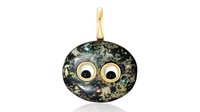Chris Blakeslee has experience at Athleta and Alo Yoga. Kendra Scott will remain on board as executive chair and chief visionary officer.
JVC: Complying with transgender legal developments
Sex discrimination laws recently have been interpreted to include discrimination on the basis of gender identity--an individual’s perceived gender. Suzan Flamm with the JVC tells jewelers what they need to know about these developments.
Most employers are familiar with the federal and state laws that prohibit discrimination on the basis of sex. These laws recently have been interpreted by the U.S. Department of Labor, state and local agencies, and courts to include discrimination on the basis of gender identity--an individual’s perceived gender, which may or may not be their actual gender. This means that it is unlawful for an employer to discriminate against an employee or applicant based upon gender identity. In some state and local jurisdictions, it is also unlawful to discriminate on that basis against visitors to places of public accommodation, including stores.

Below, we review the recent changes in state and federal law and how those impact jewelers, as both employers and owners of stores.
Gender identity and gender expression
Gender identity is an individual’s sense of being either male or female, or something other or in-between. Gender expression describes external behaviors that are perceived as either masculine or feminine, such as dress, mannerisms, speech patterns and social interaction. “Transgender” is an umbrella term. It includes anyone whose gender identity or gender expression does not match society’s expectations of how an individual who was assigned a particular sex at birth should behave in relation to that assignment.
Recent federal cases
The EEOC recently filed lawsuits against two companies, alleging that transgender employees at the companies had been subjected to sex discrimination. In both cases, the transgender employees alleged that they were fired shortly after notifying their employers that they would begin transitioning from presenting as men to presenting as women.
In a third action brought by the EEOC, a transgender employee, who presented as a man at the time of hire and later began to present as a woman, was not allowed by her company to use the women’s restroom. She also alleged that she was subjected to a hostile work environment, including hurtful language and the use of male pronouns in reference to her. While one of these cases
Guidance from the U.S. Department of Labor regarding restrooms
In its guidance, the U.S. Department of Labor advised that all employees, including transgender employees, should have access to restrooms that correspond to their gender identity--their sense of which gender they are. Employers should not impose unreasonable restrictions on employees’ use of restroom facilities by, for example, requiring them to use gender-neutral or other specific bathrooms and thus segregating them from other workers.
Moreover, transgender employees should determine the most appropriate and safest option for themselves, and employers should not obligate them to provide any medical or legal documentation regarding their gender identity. Employers who fail to comply with the guidance put themselves at risk of receiving a citation from OSHA. They would also be vulnerable to regulatory or private-party action under Title VII of the Civil Rights Act.
Transgender visitors to retail stores covered by some state and local laws
At the local level, 18 states and the District of Columbia have enacted laws that clearly prohibit transgender discrimination. In October of this year, the governor of New York State issued regulations banning harassment and discrimination against this protected class. Additionally, at least 200 cities and counties now ban gender identity discrimination.
The laws of many of these jurisdictions apply not only to employees, but also to individuals visiting places of public accommodation--establishments that provide goods and services to the general public, including retail stores.
In New York City, for example, it is a discriminatory practice for a public accommodation to refuse facilities or services based upon a person’s actual or perceived gender. Pursuant to this law, public accommodations, including stores, should allow individuals to use restrooms that are consistent with their gender identity or gender expression. They should also allow them the use of restrooms without requiring identification to prove their gender. Additionally, pursuant to the New York City law, individuals should be addressed with names and pronouns appropriate to their gender identity.
What employers and stores should do
Employers should adopt and implement policies that address the use by transgender employees of restroom facilities. The policy should make clear that a transgender employee will not be required to use any particular restroom. It should describe the options available to the employee. Next, train managers and human resources personnel regarding this policy. Make clear that transgender employees may use the facility where he or she feels safest and most comfortable.
Since stores are places of public accommodation, owners or managers should learn the law in their jurisdiction. If state or local laws prohibit transgender discrimination in public accommodations, such as stores, they should adopt and implement policies regarding restroom use, as described above. Be sure that employees are appropriately trained on the use of restroom facilities by transgender customers.
Conclusion
To stay in compliance with laws relating to discrimination in the workplace and in places of public accommodation, jewelers should stay current regarding all applicable regulations, and make sure that employees are trained on relevant law. The JVC is available to help the jewelry industry fulfill its obligations by providing educational resources. For more information, visit JVC’s website at www.jvclegal.org, or call 212-997-2002.
Suzan R. Flamm, Esq. is senior counsel of the Jewelers Vigilance Committee. Email her at suzan@jvclegal.org.
The Latest

The credit card companies’ surveys examined where consumers shopped, what they bought, and what they valued this holiday season.

Kimberly Miller has been promoted to the role.

How Jewelers of America’s 20 Under 40 are leading to ensure a brighter future for the jewelry industry.
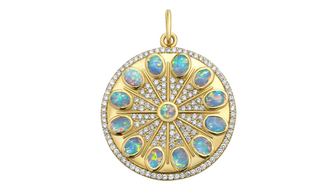
The “Serenity” charm set with 13 opals is a modern amulet offering protection, guidance, and intention, the brand said.


“Bridgerton” actresses Hannah Dodd and Claudia Jessie star in the brand’s “Rules to Love By” campaign.

Founded by jeweler and sculptor Ana Khouri, the brand is “expanding the boundaries of what high jewelry can be.”
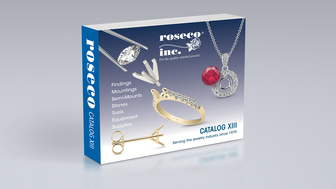
Roseco’s 704-page catalog showcases new lab-grown diamonds, findings, tools & more—available in print or interactive digital editions.
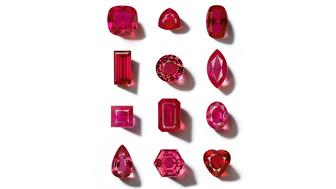
The jewelry manufacturer and supplier is going with a fiery shade it says symbolizes power and transformation.

The singer-songwriter will make her debut as the French luxury brand’s new ambassador in a campaign for its “Coco Crush” jewelry line.

The nonprofit’s new president and CEO, Annie Doresca, also began her role this month.

As the shopping mall model evolves and online retail grows, Smith shares his predictions for the future of physical stores.
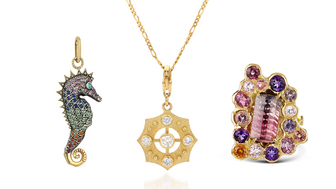
The trade show is slated for Jan. 31-Feb. 2 at The Lighthouse in New York City's Chelsea neighborhood.
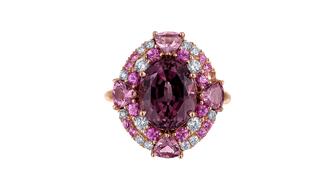
January’s birthstone comes in a rainbow of colors, from the traditional red to orange, purple, and green.

The annual report highlights how it supported communities in areas where natural diamonds are mined, crafted, and sold.

Footage of a fight breaking out in the NYC Diamond District was viewed millions of times on Instagram and Facebook.

The supplier has a curated list of must-have tools for jewelers doing in-house custom work this year.

The Signet Jewelers-owned store, which turned 100 last year, calls its new concept stores “The Edit.”

Linda Coutu is rejoining the precious metals provider as its director of sales.

The governing board welcomed two new members, Claire Scragg and Susan Eisen.

Sparkle with festive diamond jewelry as we celebrate the beginning of 2026.

The master jeweler, Olympian, former senator, and Korean War veteran founded the brand Nighthorse Jewelry.
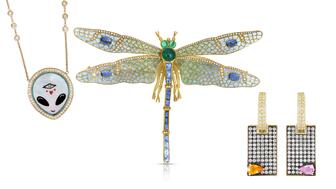
In its annual report, Pinterest noted an increase in searches for brooches, heirloom jewelry, and ‘80s luxury.

Executive Chairman Richard Baker will take over the role as rumors swirl that a bankruptcy filing is imminent for the troubled retailer.

Mohr had just retired in June after more than two decades as Couture’s retailer liaison.

Shekhar Shah of Real Gems Inc. will serve as president of the Indian Diamond & Colorstone Association in 2026.
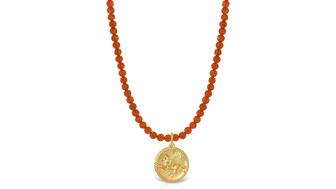
This year’s good luck charm features the mythical horse Pegasus, and is our first Piece of the Week of the new year.




